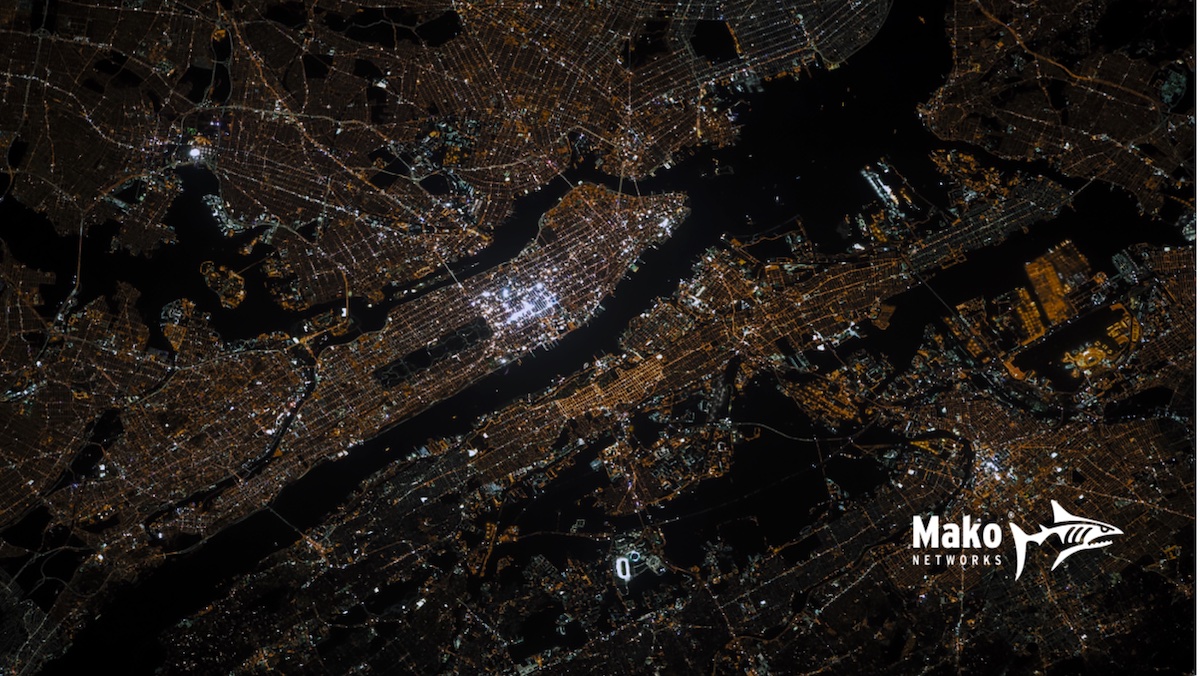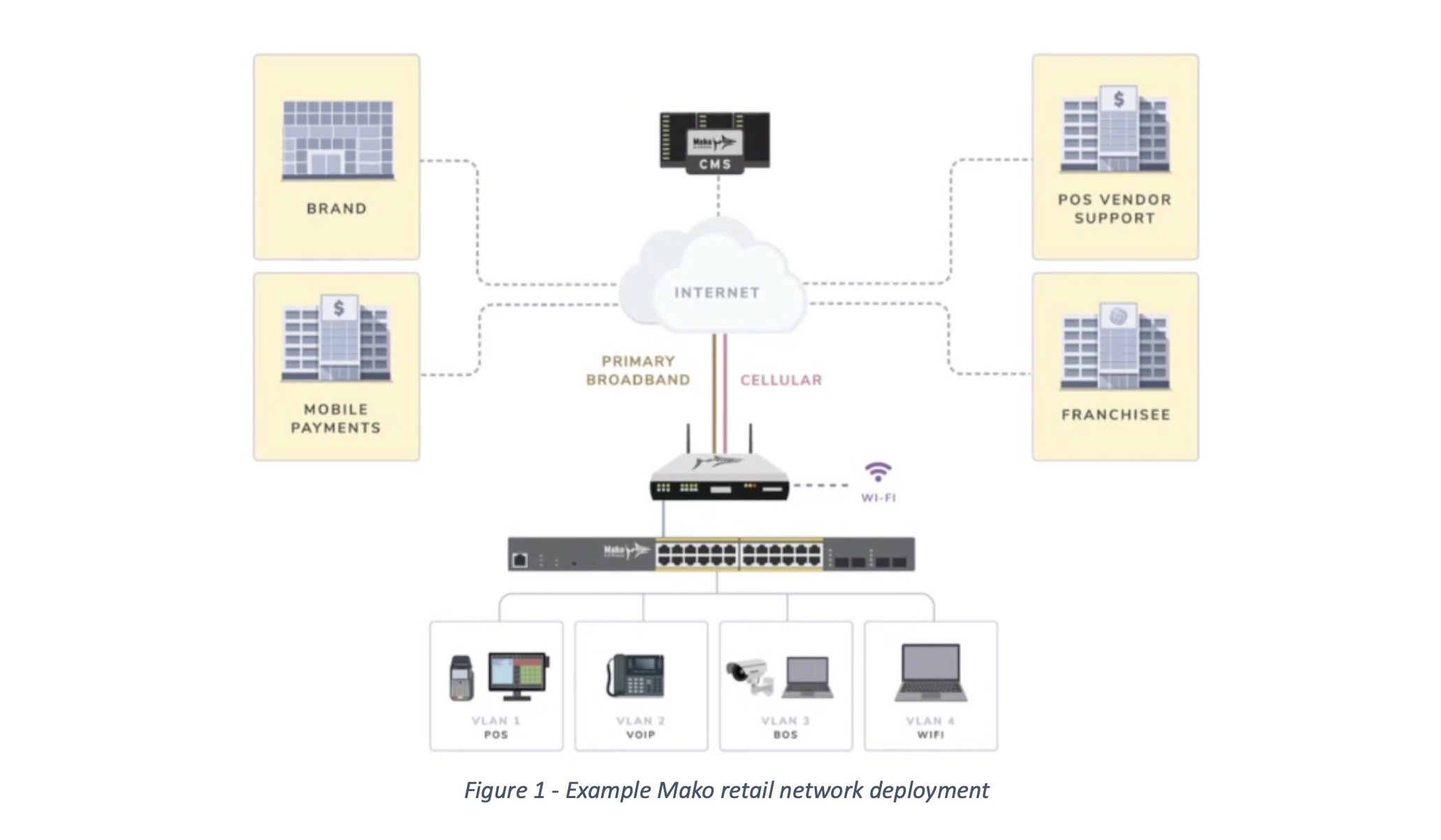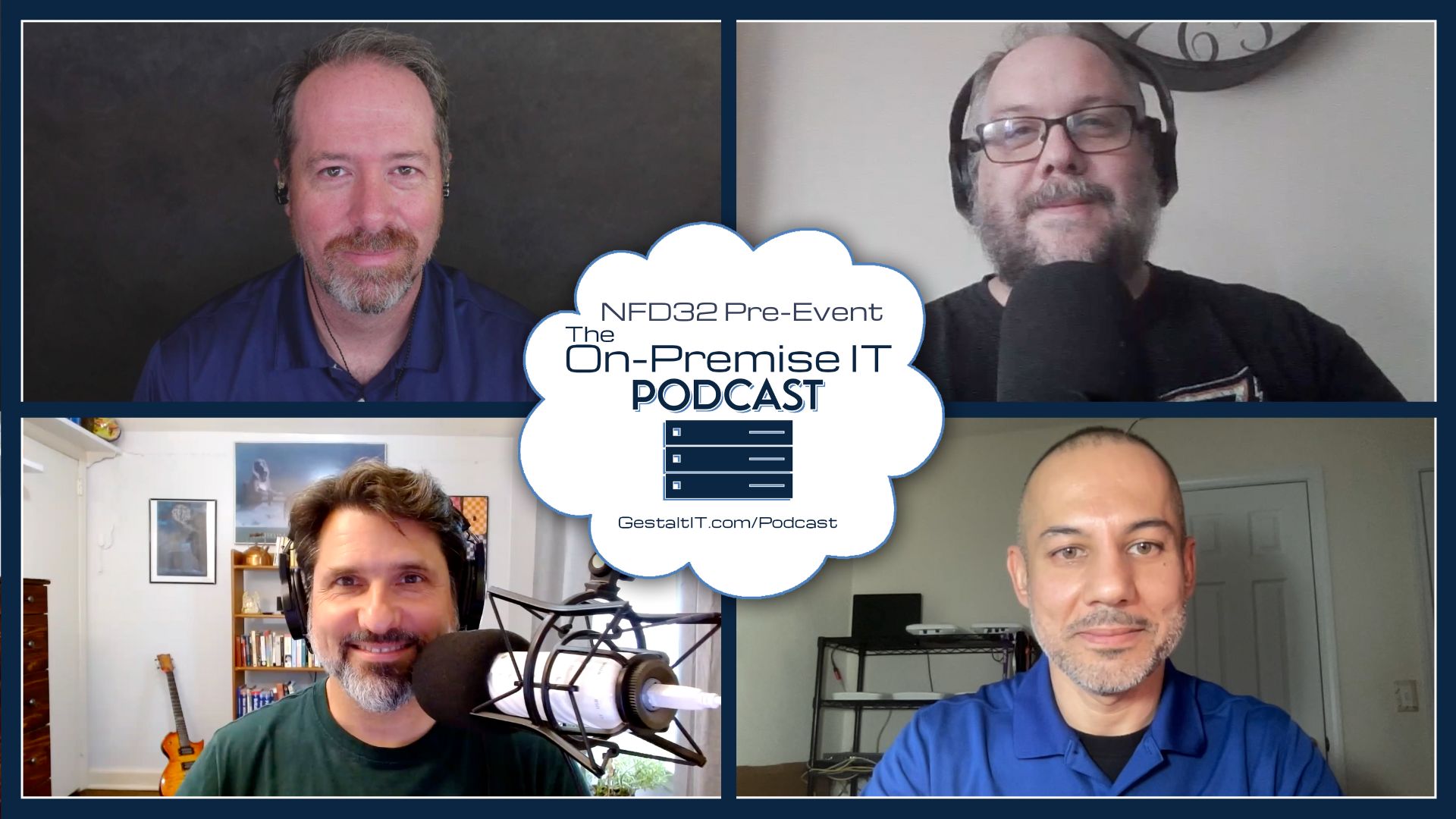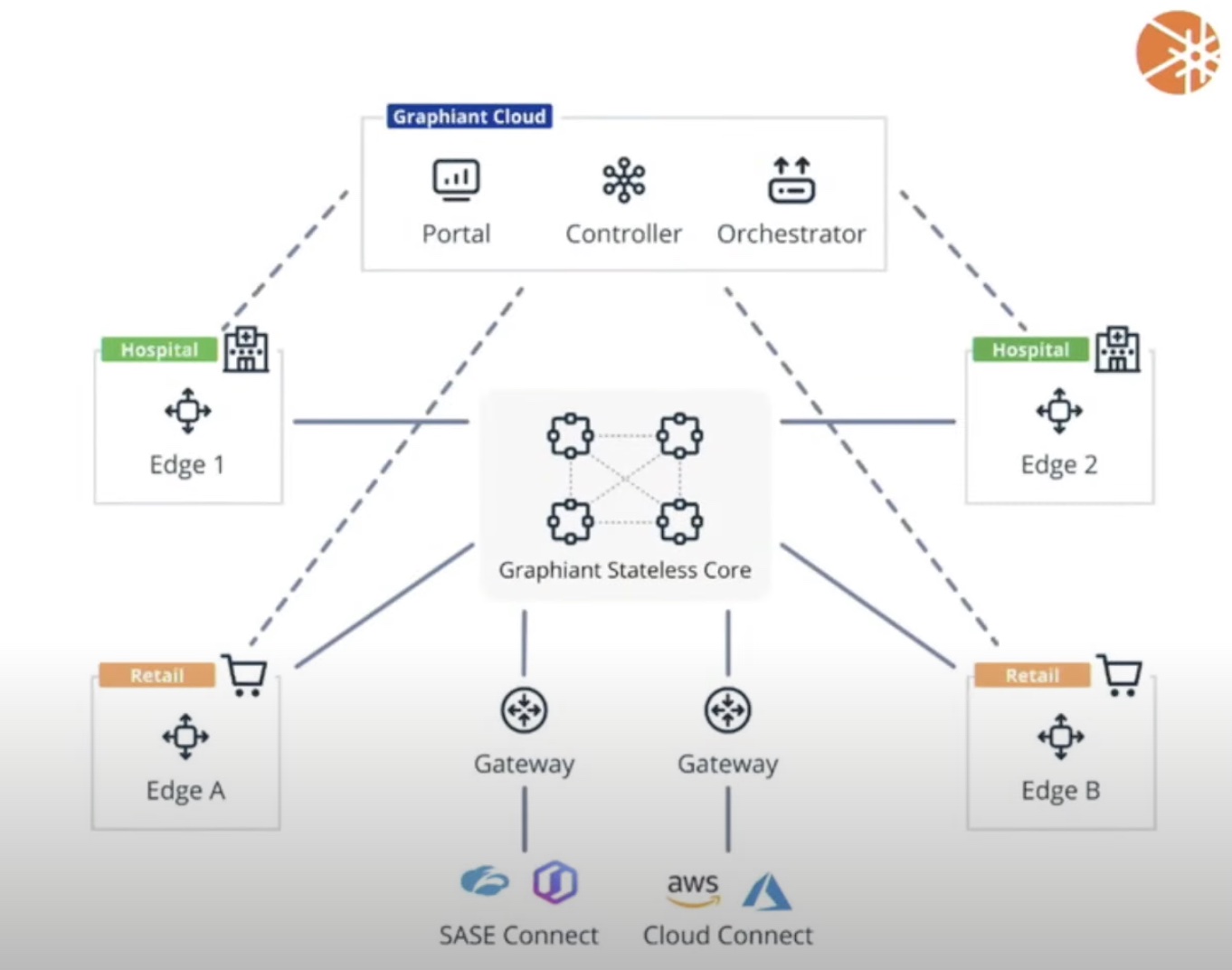
Anybody with a first-hand experience of building products within a service provider knows how hard it is to create a true “as-a-service” offering. Start sprinkling external certifications on top of this, and what was a lot of work quickly becomes a grind with real challenges of its own.
Mako Networks checks this by being a vendor that produces its own hardware and software that are sold as-a-service on monthly subscriptions. On top of that, Mako technology is also PCI-certified making it the only network vendor to truly make such a claim. Propelled by this, Mako Networks has made huge inroads into the distributed retail enterprise (i.e service stations, car parks, QSRs) business in North America and Europe. The PCI certification extends across both the hardware and software layers. It is fully transferrable into customer networks making it in a no-brainer when accepting payments across the network.
What Does the Ecosystem Look Like?
The Mako ecosystem can be broken down into two elements – the Mako CMS, and the network devices.
Mako CMS (Central Management System) is the brain of the solution. It is a cloud-based, multi-tenant management portal where all network devices are managed and monitored. Built in-house, it provides a rich set of functionalities.
Network devices include secure gateways with built-in wireless and cellular failover, VPN concentrators, access points, managed switches – everything needed in a modern network.
When customers purchase any of the Mako Networks devices, they are onboarded onto the Mako CMS which is included as part of the as-a-service offering. There are no hidden additional fees or add-ons for it.
No matter how distributed the network is, customers manage their entire network here. Mako secures the devices and achieves the coveted PCI certification by sidestepping local management. With no factory reset switches on the devices, it delivers advanced physical security as well as network security.
Configuration
With centralized configuration, users can access all Mako devices via the CMS, and enforce changes from one place. The real power though is the bulk configuration functionality such as enterprise templates which can be rolled out to potentially thousands of devices at once.
As part of the service offering, Mako also provides a set of PCI-certified templates which can be used on all Mako devices on the fleet, and demonstrated to auditors.
Enabling the PCI-certified templates allows devices to have change control activated which prevents a single person from making changes to the network without approval.
Software Updates
As Mako makes new software revisions available, customers can choose to stage these updates to their devices. Updates can be staged into a lab first before rolling out to production. Rollout progress can be monitored across the estate.
Security
The way Mako has structured the devices within the CMS makes it very easy to restrict user access via RBAC. Some users could have complete control of all devices, while others may only have access to certain devices and a restricted set of functionalities.
Monitoring and Alerting
Centralized reports and diagnostics provide visibility into the health and performance of the entire network. With support for NetFlow, email, SMS and Webhooks, users can subscribe anyway they like to an ever-growing number of events, from firewall issues to device or port health that might occur on their network.
The real hero is the Webhooks functionality that enables real-time data transfer following an occurrence in the network. Webhooks can be integrated with almost any application. Users will most likely want to have these pushed into ticketing or on-call paging solutions, but a flow of events can also be streamed into Microsoft Teams or Slack channels.
What type of organizations make a good fit for Mako Networks? Any organization that requires a feature-rich set of network devices and centralized management could use Mako as their network vendor. Organizations with a desire to procure via a cost-effective, scalable OPEX model for their network devices would find their as-a-service model profitable.
Conclusion
Having PCI compliance taken care of at the network layer is a massive burden for organizations and often a stumbling block in maintaining compliance. Mako Networks help offload that with ready compliance. Its centralized management reduces infrastructure workloads while saving time with the ability to push out templated policy changes and software updates through a single portal.
Mako themselves maintain that their product starts making absolute sense for any organization with around 50 devices or more. However, they assured that users will start seeing value around 10 devices or more.
See all of Mako Network’s videos from Edge Field Day 1 on the Tech Field Day website. Find out more about their products on the Mako Networks website.




